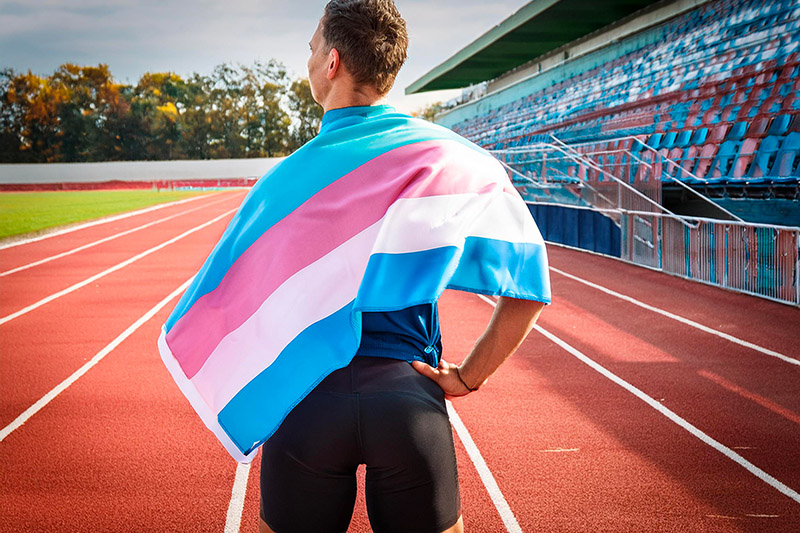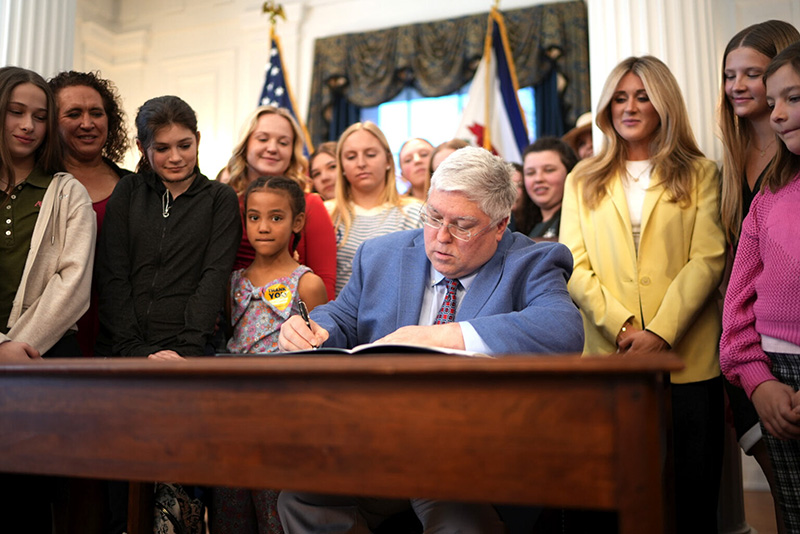Virginia school board asks Supreme Court to block transgender students from restrooms and other facilities
School board says lower courts' rulings overstep the bounds of what Title IX was intended to do

A Virginia school board is refusing to give up on its attempts to permanently block transgender students from restrooms and other facilities that don’t match their assigned sex at birth, asking the U.S. Supreme Court to resolve the issue once and for all.
Last week, the Gloucester County School Board filed a petition with the nation’s highest court, asking it to review lower courts’ rulings in favor of Gavin Grimm, a transgender alumnus of Gloucester High School, who sued after being barred from the boys’ restroom.
As Metro Weekly has previously reported, Grimm was initially allowed to use the boys’ restroom after transitioning, but was later told by the school board he could not after parents and conservative members of the community balked at the school’s initial attempt to accommodate Grimm.
As a half-measure, the school constructed several single-stall restrooms out of broom closets that could be used by “any” student. But in practice, the vast majority of cisgender students continued to use the restrooms matching their assigned sex at birth, and Grimm was the only student expressly required to use the makeshift single-stall facilities if he refused to use the girls’ restroom.
Grimm later sued the school district, arguing that the restroom ban violated his rights under both Title IX of the Education Amendments Act of 1972 and the Equal Protection Clause of the Fourteenth Amendment.
In its petition to the Supreme Court, the school board asks whether Title IX or the Equal Protection Clause requires schools to “let transgender students use multi-user restrooms designated for the opposite biological sex, even when single-user restrooms are available for all students regardless of gender identity.”
The school board alleges that allowing transgender students to use facilities matching their gender identity “raises…serious concerns about bodily privacy.”
“Depending on their facilities and resources, some school officials reasonably find ways to accommodate the [transgender] teenager’s desire to use facilities based on gender identity rather than sex. Others, exercising their best judgment as to the needs of all their students, lawfully decide to reserve boys’ and girls’ facilities to the respective biological sexes — often, as in this case, providing additional options such as single-user facilities available to all students,” the board writes in its petition.
Citing fears that the Biden administration will air on the side of Grimm and other transgender students, particularly following a recent Supreme Court decision finding that anti-transgender discrimination is a form of sex-based discrimination (which is prohibited under Title IX), the board accuses the 4th U.S. Circuit Court of Appeals — which ruled in Grimm’s favor last year — and lower courts reaching the same conclusion, of attempting to impose a “one-size-fits-all” solution to the conflicts over transgender restroom usage.
See also: Federal court reaffirms Pennsylvania school district’s pro-transgender restroom policy
“According to [the courts], even schools that lack sufficient facilities or resources to ensure the bodily privacy of all their students are still required by Title IX and the Fourteenth Amendment to allow biologically male teenagers into multi-user girls’ restrooms, locker rooms and showers, and vice versa,” the board argues. “That means the Board’s policy of separating existing multi-user restrooms by physiological sex while also providing single-user restrooms for all students is prohibited.
“Neither Title IX nor the Equal Protection Clause mandates such a sweeping rule, and only this Court can reverse decisions adopting it in a growing number of circuits, supported now by the incoming Administration,” the board continues. “This case also gives the Court an ideal, timely vehicle with which to make that decision…Resolution of the Title IX issue — along with the closely related Fourteenth Amendment issue — has become even more pressing given the new Administration’s insistence that Title IX must be applied in a manner contrary to its express terms.”
The high court had previously granted a petition for certiorari to determine whether Grimm had a right to sue under Title IX, and was slated to hear oral arguments in March 2017 focusing on that technical aspect of the case (and not on the merits of Grimm’s discrimination claims).
But the court later canceled oral arguments after the Trump administration rescinded Obama-era guidance that had specifically stated Title IX’s protections applied to transgender students. Because the 4th Circuit had based its ruling on narrow grounds and on explicit language contained in the Obama administration’s guidance, the high court sent the case back to the lower courts to determine the case on its merits.
Even though Grimm graduated from high school in 2017, a federal judge ruled in his favor in 2018, finding that he had been discriminated against by the Gloucester County School Board’s restroom policy, as well as its refusal to issue a high school transcript using his correct name. That ruling was upheld by the 4th Circuit last year, which subsequently denied a request from the school board asking it to rehear the case.
The Supreme Court has never directly ruled on whether transgender people have the right to access facilities consistent with their gender identity, but its previous decision in 2016 to grant certiorari could signal that the high court may choose to take up the Grimm case — and the debate over transgender rights altogether — sometime in the near future.
The American Civil Liberties Union and the ACLU of Virginia, which have represented Grimm, blasted the board for continuing its efforts to discriminate against transgender students.
“No student deserves the kind of treatment Gavin endured while he was in high school. Courts have ruled time and again that transgender students must be protected from discrimination, yet Gloucester County schools continue to deny basic respect and dignity for its students,” Eden Heilman, the legal director of the ACLU of Virginia, said in a statement.
“It is disappointing that after six years of litigation, the Gloucester County School Board is still digging in its heels,” added Josh Block, a senior staff attorney at the ACLU. “Federal law is clear: Transgender students are protected from discrimination. Gloucester County schools are no exception.”
Grimm called the school board’s continued appeals “upsetting and disappointing,” saying the board “continues to deny who I am.”
“Trans students in Gloucester County schools today should have the respect and dignity that I was denied,” he said in a statement. “Whether it’s using the right restroom or having transcripts that reflect who we are, we all deserve to go to a school that’s free of harassment and discrimination.”
Read more:
LGBTQ Victory Fund calls for Donna Nesselbush to be named Rhode Island lieutenant governor
Merrick Garland: “It is the job of the Justice Department to stop” anti-trans hate crimes
Biden taps D.C. brewery owner for Small Business Administration post
Support Metro Weekly’s Journalism
These are challenging times for news organizations. And yet it’s crucial we stay active and provide vital resources and information to both our local readers and the world. So won’t you please take a moment and consider supporting Metro Weekly with a membership? For as little as $5 a month, you can help ensure Metro Weekly magazine and MetroWeekly.com remain free, viable resources as we provide the best, most diverse, culturally-resonant LGBTQ coverage in both the D.C. region and around the world. Memberships come with exclusive perks and discounts, your own personal digital delivery of each week’s magazine (and an archive), access to our Member's Lounge when it launches this fall, and exclusive members-only items like Metro Weekly Membership Mugs and Tote Bags! Check out all our membership levels here and please join us today!


























You must be logged in to post a comment.